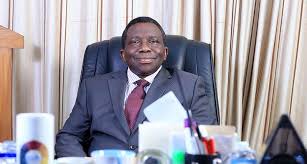By Asma’u Ahmad
The Minister of Health, Prof. Isaac Adewole, has appealed to the World Health Organisation (WHO) for a reference laboratories and more vaccines to achieve the target of eliminating yellow fever in Nigeria by 2026.
The minister made the call at the WHO Global Policy Group (GPG) Meeting and Africa inauguration of Eliminate Yellow Fever Epidemics in Africa strategy (EYE) on Tuesday in Abuja. Adewole, who lamented that the surveillance efforts in Nigeria were limited due to limited accredited laboratories, said “we are clamouring for regional lab in Nigeria.’’
He said government was committed to the outcome of EYE strategy, but that Nigeria needs more vaccines, and appealed for worldwide efforts to rejig and produce more vaccines. “We are asking for more than political commitment but political action, we are in support of strong monitoring to ensure that we are on top of this outbreak. “We want to see effective synergy across board and continued support on research across all levels,’’ he said.
The minister said Nigeria has been on the move to eliminate yellow fever epidemic since 2004. He said the last outbreak of yellow fever in Nigeria was in 1996, since then government went on to sleep thinking that it was over. “What went wrong was the inability of the government to continue with routine immunisation to protect people against yellow fever. “Therefore, it is not a surprise when Nigeria record new cases of yellow fever outbreaks in 2017,’’ Adewole said.
He however noted that for government to succeed in the fight to eliminate the disease it must vaccinate everybody, whic was a huge challenge for Nigeria. He said by March 2018, six months after resurgence of yellow fever in the country, Nigeria has recorded 1,640 suspected cases of the disease.
He said 115 of the 1,640 were confirmed in the Nigerian laboratories, and only 41 were confirmed by the regional centre. “This is one of the issues we will like to raise, if we confirm 115 in Nigeria and only 41 of the 115 were confirmed by the regional centre in Dakar. “The remaining 74 cases could have been confirmed as true cases of yellow fever, the challenge of transportation could have altered the ability to confirm the cases at the regional centre in Dakar,’’ Adewole said.
He noted that since the resuregence of yellow fever in Nigeria, the government with the support of partners has conducted reactive and preventive vaccination in Kwara, Kogi, Zamfara, Niger, Sokoto and Borno states. He added that 14,591,218 people were vaccinated, stressing that government targets to vaccinate 25 million people in 2018.
Adewole said the government has a nationwide plan to cover the entire country in the next seven years. Earlier, the Director-General of WHO, Dr Tadros Adhanom, said that yellow fever has reemerged as a public health challenge in Africa and in the Americas. He added that in Africa, 27 countries are at high risk of yellow fever epidemics.
He said there were 170,000 severe cases of yellow fever with 60,000 deaths annually. “In 2016 during the yellow fever outbreak in Angola and DRC, 965 cases were confirmed with 400 deaths with 11 cases exported to China,’’ he said.
Adhanom said nearly one billion people would be vaccinated against yellow fever in the 27 high risk African countries by 2026 with support from the WHO, UNICEF and more than 50 health partners.





